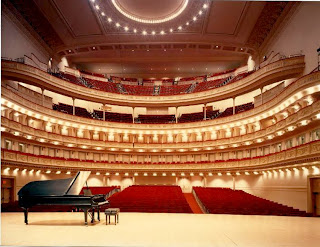As a child, our house was a quiet nook of a place. All morning long, and into the afternoon, my brother and I worked on schoolwork while my mother took care of dinner preparations, housework, and other jobs. But at 3:30 every weekday afternoon, the house filled with the shuffle of bodies and the sounding of musical scales on the piano as the first of my mother’s afternoon piano students arrived.
By the time I was in high school, I spent most of the time piano students were in the house cloistered upstairs in my bedroom. From my perch upstairs, I grew to know Clementi’s Sonatinas so well that I refused to learn them when I myself was taking lessons. And I learned other things about piano lessons, which have stuck with me far longer than the French I attempted to study while students banged away at their first piece of Bach below.
My mother preferred her students know how to read before they began lessons. And she was suspicious about the Suzuki method of teaching, which starts students out at a very young age and can lead to poor note reading skills and a somewhat mechanical approach to playing music. My mother believed that music was something more than playing the right notes in the right order. Heck, a trained monkey could do that. Music can’t be music until it’s the right notes in the right order played in manner that connects it to human emotion. In essence, music should be your heart speaking through your fingertips.
I spoke with a retired music instructor this summer who’d used the Suzuki method during their teaching days. During the conversation I was struck by the amount of emotional distance between the two of us. The experience left me cold and it got me thinking that maybe the notion of listening to the music of the heart could apply to many facets of life: from how we communicate with others to our more solitary, creative pursuits . . . like writing.
Writing and music, for the most part, are drastically different entities. Yet they come from the same place: some hidden spring within that we learn to tap and train, but never fully understand.
And if we’re going to get anywhere with our writing or music, we need some method to our madness so that what spews forth from the spring appears polished and accomplished. (Remember: “How to you get to Carnegie Hall?” Practice, practice, practice.) On Sunday, I pulled out the three-ring binder which has been collecting dust on my shelf all summer. The binder contains a print out of the novel I revised last winter. It’s time to pull out my red pen to polish up the writing just a little more and to research agents, writing synopses, and try to get this little story out the door. If the novel’s going to get anywhere, I need to subscribe to set method of how to query, when to query, etc, just as I have to do when seeking out freelance writing possibilities.
But we don’t want the method to turn into our life. We don’t want to transform the pursuit of goals into a mere checklist. Creative pursuits just aren’t meant to be robotic. While success does often breed business, we still want to write, or play music, or follow whatever creative lurks in our heart, for nothing more than the fact that something is itching to bubble out our fingertips.
We can live our lives by a method or we can choose to go deeper than that. And going deeper often makes us more vulnerable. But I’d rather my life had a soundtrack instead of just hitting all the right notes in the right order.


No comments:
Post a Comment